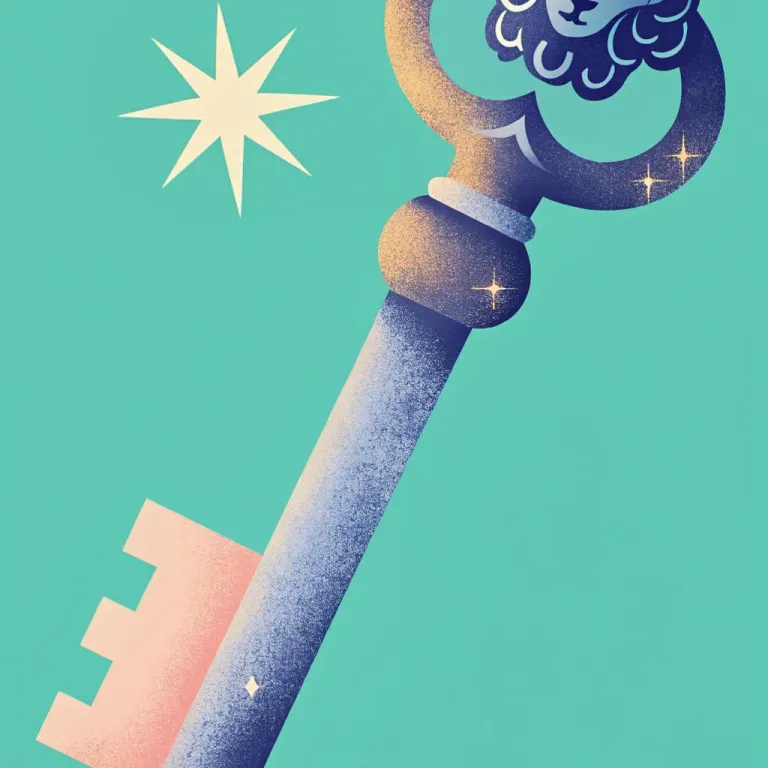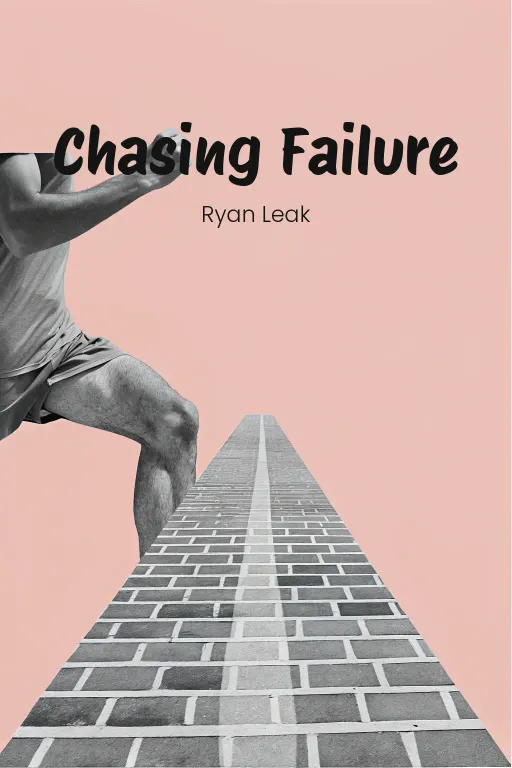
Own Your Bold: Confidence Unlocked
Podcast by Beta You with Alex and Michelle
The Science and Art of Self-Assurance — What Women Should Know
Own Your Bold: Confidence Unlocked
Part 1
Alex: Hey everyone, welcome back to the show! Today we're tackling something we all want but often struggle with: confidence. It really shapes everything, from your career to your relationships. And here's the thing—have you ever noticed how differently men and women seem to experience it? Let's explore why. Michelle: Okay, Alex, so we're finally getting to the bottom of this. Why is it that I see so many incredibly talented women second-guessing themselves while guys...well, while guys like me just barrel ahead? I'm ready to be enlightened. Alex: Exactly! And that's what the book “The Confidence Code” unpacks. It's about why confidence can feel so out of reach for women, and it's not just about "being brave" or "taking risks." It's this fascinating combination of biology, how society shapes us, and our own psychology that creates these differences. Plus, the book gives you really practical strategies, like embracing vulnerability, redefining what confidence actually is, and growing into it in a genuine way. Michelle: So this isn't just some fluffy self-help stuff, right? We're talking about real science, about dissecting the real-world issues that hold women back? Alex: Exactly! Today, we're breaking it down into three key areas. First, we'll look at how gender influences confidence—why women often internalize doubt while men might overestimate themselves. Then, we’ll explore the biology behind all this—how hormones and brain chemistry play a role. And finally, we'll discuss concrete steps you can take to build confidence: power poses, reframing negative thoughts, and why actually doing things is the best way to fight self-doubt. Michelle: Alright, so we’re getting the whole roadmap for rethinking confidence, from the neuroscience to the practical tips. I'm hooked. Let’s dive in!
Gender Perspectives on Confidence
Part 2
Alex: Okay, let's dive into how society and culture shape our confidence. It's amazing how deeply these patterns are embedded, right from childhood. Boys are often pushed to take risks, lead in games, and generally be assertive, while girls are usually praised for being polite, collaborative, or getting good grades. These early lessons “really” stick with us, affecting how we handle opportunities and challenges as adults. Michelle: So, we're basically being pre-programmed into these roles before we even realize it. But how does this childhood stuff play out in the workplace? Shouldn't we be over all that playground stuff by now? Alex: You'd think so, wouldn't you? But these patterns are still very much in play. For example, men are much more likely to apply for a promotion even if they only meet, say, 60% of the requirements. Women, on the other hand, often hold back until they feel they meet 100%. Think about that difference – a man sees an opportunity and thinks, "Why not go for it?" A woman, who might be just as qualified or even more so, thinks, "Am I “really” ready?" Crazy, right? Michelle: Wait a second, is that 60-versus-100-percent thing based on actual research? I mean, I have to admit, I've definitely applied for jobs when I was nowhere near fully qualified, and it never even crossed my mind to hesitate. Alex: Exactly! And that's because men are often conditioned to see every opportunity as worth pursuing. Women, though, tend to be more fearful of failure and internalize their shortcomings. They're taught to over-prepare and prove themselves beyond any doubt before stepping forward. Even Linda Hudson, the former CEO of BAE Systems, noticed how the men in her organization tended to brush off failure as bad luck or someone else's fault, while the women would agonize over every little setback, wondering, “What did I do wrong?" Michelle: So, women are basically facing this huge mental hurdle every time they make a decision. Men just waltz right over it, all carefree and optimistic – or maybe just clueless, depending on your perspective. Alex: Clueless maybe! But society often rewards that "honest overconfidence." The book mentions how men tend to overestimate their skills and genuinely believe their own inflated self-assessments, regardless of the actual evidence. The kicker? This boldness is often mistaken for actual competence in professional situations. Michelle: So confidence and competence aren't exactly twins – more like distant cousins, at best. There's definitely a bias that equates confidence with ability. But doesn't that backfire sometimes? We've all heard stories about overly confident executives making terrible decisions. Alex: It absolutely backfires. One example the book uses is male traders on Wall Street. Higher testosterone levels can lead to them taking bold, uncalculated risks in the financial markets. Sometimes those risks pay off big, but often they lead to catastrophic failures. Overconfidence can be “really” dangerous, but it still helps propel careers in a culture that often rewards risk-takers. Michelle: Okay, but here's what I'm wondering. If women are more prone to self-doubt, isn't there some advantage to being cautious and detail-oriented—at least when it comes to avoiding mistakes? Alex: Absolutely, there's something to that. Studies of hedge funds actually show that female managers tend to outperform their male counterparts in the long run because they take fewer reckless risks. But here's the tricky part: the confidence gap can still create systemic disadvantages. If women are second-guessing themselves in meetings or starting their ideas with phrases like, "I'm not sure, but…," it undermines how their competence is perceived. Over time, that perception gap can turn into a “real” gap in terms of who gets promoted or gets trusted with leadership roles. Michelle: And the worst part is, once you start apologizing or hesitating, you reinforce the very self-doubt you're trying to avoid. It's like a psychological trap. Alex: Exactly! And then there's stereotype threat, which amplifies the problem even more. That's when women – or any underrepresented group – start to underperform in situations where they fear confirming negative stereotypes about their abilities. For example, Harvard studies on math performance have shown that women score lower when their gender is brought to their attention beforehand. However, when their Asian heritage, which is often associated with math skills, is emphasized, their scores actually improve. Michelle: So confidence isn't just about how you see yourself—it's about how the world sees you, too. If you're constantly battling against these external biases, you're using up mental energy that most men don't even realize is a factor. Alex: Precisely. Even in high-stakes situations like boardroom meetings, you'll see women adopting a careful, cautious tone because they don't want to come across as aggressive or overstepping. But the other side of that coin is just as damaging – if they're too soft-spoken, they risk being dismissed altogether. Research shows that women trying to strike that "perfect balance" are carrying a mental load that their male colleagues can't even imagine. Michelle: Sounds like a no-win situation. If you're assertive, you're "too much." If you hold back, you're invisible. What's the middle ground? Does the book offer any solutions? Alex: It does, but not in a simplistic way. The key isn't for women to imitate traditional "male" confidence strategies but to redefine confidence itself. It's about allowing space for vulnerability, accepting failure as part of growth, and stepping up to opportunities even when doubt is present. Michelle: So, it's not about getting rid of doubt altogether but learning to live with it—like a grumpy roommate who's annoying but ultimately harmless.
Biological Influences on Confidence
Part 3
Alex: So, after understanding these disparities, we need to explore how biological factors further influence confidence levels. This is where things get super interesting, you know? Confidence isn’t just about society or how we were raised; our biology plays a massive role. Think genetics, hormones, even the brain’s ability to rewire itself -- there’s a whole universe influencing how confident we feel. And this connects what's innate with how those traits play out in real life, eventually leading to those societal hurdles we've been discussing. Michelle: Alright, biology, huh? So we're diving into the "nature" side of the age-old "nature versus nurture" debate. Okay, I'm intrigued. Where do we even begin with this? Alex: Let’s start with genetics, which is probably the most fundamental layer here. Have you ever heard of the serotonin transporter gene, also known as “SLC6A4”? Michelle: Nope, can’t say that’s ever come up at a dinner party! Sounds pretty complex. What exactly does it do? Alex: Basically, it regulates serotonin. Serotonin is a neurotransmitter that greatly affects mood, emotional regulation, and, yes, confidence. Now, here's the interesting part: this gene has two main versions, a short one and a long one. People with the short allele tend to be more sensitive to stress, which, can bring down confidence. Those with the long allele, however, often show greater emotional resilience, leading to more optimism and self-assurance. Michelle: So, it sounds like you draw a genetic card at birth, and then, depending on what you get, you’re either coasting through life or struggling a bit, trying to keep it together? Alex: Well, kind of, but it's not quite set in stone like that. Think about the “orchid versus dandelion hypothesis”. Researchers Bruce Ellis and W. Thomas Boyce came up with this idea to explain how our genes interact with our environment. "Orchids" are super sensitive to their surroundings. They’ll thrive in a supportive, nurturing environment—better than most, actually. But put them in a harsh environment, and they struggle. "Dandelions," on the other hand, metaphorically speaking, can grow pretty much anywhere. They’re resilient no matter what the conditions are. Michelle: Okay, so orchids need a greenhouse, while dandelions are just out there, living their best lives in the cracks in the sidewalk. Got it, that’s a pretty vivid image. But how does this apply to building confidence? Alex: It’s all about how genetics and environment interact. There was this cool study about rhesus monkeys with genes that made them really reactive to stress. But when they were placed with nurturing caregivers, they didn't just overcome their genetic vulnerabilities—they actually thrived socially and emotionally. The point? Even if someone is genetically predisposed to be more sensitive or cautious, the right environment – say, a supportive boss, mentors, positive experiences – can totally change the game. Michelle: So, genetics sets the stage, but nurturing adds the…finishing touches. That’s actually pretty encouraging. What about hormones, though? You mentioned testosterone and estrogen earlier. Where do they fit in? Alex: Hormones are huge when it comes to confidence and risk-taking. Take testosterone, for example— it’s linked to competitiveness and boldness. Men tend to have higher testosterone levels, which, in part, explains why they’re often more likely to take risks or assert themselves in situations where women might hesitate. Michelle: Uh oh, I feel like we’re about to get an example. Please tell me it doesn’t involve cavemen. Alex: Definitely not! Instead, let’s talk about the London Stock Exchange. Researchers did a study on traders and found that men with higher testosterone levels at the start of the trading day made riskier, bolder bets. And when those bets paid off, it created a feedback loop—the "winner effect." Their confidence increased, they kept making bold moves, and the cycle kept going. Of course, the downside was that this overconfidence sometimes led to major errors and losses. Testosterone pushes boldness, but it can also lead to hubris if it’s not kept in check. Michelle: So, kind of like pouring fuel on a fire—sometimes it lights the way, sometimes it burns down the house. But, what about estrogen? Alex: Estrogen brings a totally different set of strengths to the table. It’s associated with social bonding, empathy, and collaboration. These traits make women more inclined to make cautious, well-thought-out decisions, which is why studies show that female hedge fund managers often outperform their male counterparts over the long run. They’re strategically deliberate, taking calculated risks instead of making impulsive leaps. Michelle: But I’m guessing that while that caution pays off in the long run, it’s not always noticed in environments that prefer aggressive leadership, right? Alex: Exactly. Traits influenced by estrogen— like empathy and relational thinking—are really important for teamwork and long-term strategy, but they can keep women from asserting dominance in really competitive settings. It’s a double-edged sword, biology shapes behavior, but the world often rewards the opposite. Michelle: So, hormones are like these invisible puppeteers, tugging us towards risk or restraint. But is there a way to cut the strings completely? Or are we just stuck with these predispositions? Alex: This is where neuroplasticity comes in. It’s the brain’s ability to adapt, rewire itself, and even undo some of those innate tendencies. Confidence isn’t set in stone—it can be built, reshaped, and strengthened, no matter what biology gave you at birth. Michelle: Alright, you’ve got my attention. So what's the trick then? Some kind of brain workout routine? Alex: In a way, yes! Cognitive therapy and mindfulness practices are two major tools. For instance, exposure therapy helps people face their fears in small, controlled steps, gradually rewiring their brains to associate those situations with success, not failure. On the other hand, meditation activates areas of the brain linked to stress regulation and positive thinking, reducing overthinking and fostering calm confidence. Michelle: So, like lifting weights, but for your brain—you don’t see results instantly, but consistent effort really changes the game. Any real-world examples where this has worked? Alex: Absolutely! Think about the tech world and Silicon Valley’s “fail fast” culture. It reframes failure as part of learning, not as a personal flaw. This mindset helps people view setbacks as opportunities to learn and adapt. Over time, trial and error turns the fear of failing into the confidence of innovating. Michelle: And, having allies and mentors to back you up on your journey accelerates that, right? Alex: Exactly! Positive reinforcement from mentors or constructive feedback can amplify this rewiring process. It perfectly shows how biology creates a starting point, but with the right tools and support, individuals can transcend their natural predispositions. Michelle: So, to recap, our confidence might start in our DNA and get nudged along by our hormones, but ultimately, it’s our brain's flexibility and the environment we're in that writes the end of the story. Biology isn’t destiny—it’s just the beginning.
Building Confidence: Practical Strategies
Part 4
Alex: So, armed with these biological insights, we then dive into the societal and psychological barriers that often hold confidence back, especially for women. But here's the really empowering part—instead of getting bogged down in “why” confidence is so elusive, the book offers actionable strategies to actually transform self-doubt into self-belief. Michelle, this is really where the roadmap kicks off. We're shifting gears from understanding the theory to building practical tools. This is all about building confidence brick by brick, step by step. Michelle: Practical tools, eh? Okay, so we're not just diagnosing the disease, but actually prescribing the cure. What exactly is in this confidence toolkit of yours? Alex: Oh, it’s packed! Let’s start with something that's beautifully simple yet incredibly effective – body language, and specifically, power poses. Amy Cuddy's research has shown how your physical posture can boost your confidence almost instantly. Simply by adopting expansive stances, like standing tall with your hands on your hips or stretching your arms wide, you can actually increase testosterone and lower cortisol levels in your body in just a couple of minutes. Michelle: So, a quick superhero pose in the bathroom and bam – I'm ready to conquer the world? Sounds a tad too good to be true, doesn't it? Alex: I get why it might sound simplistic, but studies really do back it up. Think about someone preparing for a high-pressure situation – pitching an idea or going into a job interview. Taking a moment to power pose in private can prime the brain for assertiveness and control. It's not that you magically acquire new skills in that moment, but it reinforces your belief in the skills you already have. Michelle: Interesting. I’ve noticed athletes doing something similar pre-game – arms raised, psyching themselves up. I always thought it was just a display of confidence, not actually generating it. Alex: Exactly. Your body language influences your mindset. And the beauty of it is? It's accessible to absolutely everyone. You don’t need years of coaching, just a few minutes and the willingness to maybe look a little silly before walking into that meeting. Michelle: Hard to argue with those kinds of results. But alright, body language aside, a lot of confidence is internal work, right? What’s the next stop on our confidence-building roadmap? Alex: That takes us to mindfulness. Meditation and mindfulness techniques are fantastic tools for taming that negative self-talk. In a world where everyone is just constantly overthinking, taking the time to focus on the present has been shown to rewire our brains to handle self-doubt and criticism in a more constructive way. Michelle: Okay, but how does sitting quietly help when you're, say, facing a boardroom full of skeptics? Alex: Good point. It’s not about the quiet time itself, but what it does for your brain in the long run. Meditation strengthens the neural pathways associated with emotional regulation. Over time, it creates a bit of a buffer against those knee-jerk negative thoughts. Katty, one of the authors in fact, had a great example of this in practice. She was facing a wave of online criticism, which she said initially triggered major self-doubt and almost paralyzed her. But with her mindfulness practices, she was able to differentiate constructive critique from purely hostile attacks. Instead of spiraling down, she recentered and actually came back stronger. Michelle: So it's about creating some mental distance between yourself and that inner critic? Learning to mute it when it's being, well, unhelpful? I get it. Alex: Exactly. Which leads us to another important tool: reframing negative thoughts. Instead of letting those automatic doubts define you, you actively challenge them. So, if you’re thinking, "I'll never be good enough for this," you consciously replace it with something more realistic and evidence-driven, like, "I've prepared thoroughly, and I bring unique value to the table." Over time, this trains the brain to approach future challenges with constructive thoughts instead of destructive ones. Michelle: So it's like having an argument with yourself – and winning. Reminds me a bit of negotiation, but with your own brain. Alex: Exactly! And while it definitely takes practice, the results can be life-changing. This is especially relevant for women who are grappling with imposter syndrome, where, despite all their accomplishments, they still feel like a fraud. By anchoring their mindset in evidence—like their qualifications and their past successes—they can shift the way they think about themselves and move from not feeling sure about themselves to feeling self-assured. Michelle: Makes sense. But let’s zoom out for a second. What about all those external pressures? You mentioned earlier how mentors can play such a powerful role – how does that all fit in? Alex: Mentorship is huge! It’s not just about having someone to look up to. It’s about having someone who sees your potential, even before you see it yourself. Christine Lagarde, the head of the IMF, is a shining example. She makes it a point in those IMF meetings to actually encourage women to speak up. That little nudge, "Hey, I see you, and I think your ideas are worth sharing." It can be really transformative. It pushes women beyond their comfort zones and creates a powerful sense of belonging. Michelle: So, mentors act as like, a mirror, reflecting back all that confidence that you can’t necessarily see in yourself. That’s pretty powerful. Alex: It really is. And it creates a ripple effect, too. When women reach leadership positions through mentorship, they’re the ones who more likely mentor others, which creates this empowering cycle...confidence then spreads right across teams and whole organizations. Michelle: Okay, so we’ve got body language, reframing our thoughts, mindfulness, and the mentorship magic. That toolkit's sounding pretty robust. But does the book highlight one particular thing as being the key to “all” of it? What's that common thread that runs through everything? Alex: Action! Confidence really doesn’t grow in a vacuum. It comes alive when you face real-world challenges, and when you are willing to risk failure. Whether it's Susan B. Anthony speaking up to hostile crowds, or Malala Yousafzai advocating for education against the odds, confidence builds up that muscle when you decide to take action...even when you’re feeling uncertain. Every small victory just reinforces your belief in your ability to cope with things and your capabilities. Michelle: So it’s about growth through action. And even if you stumble, taking that first step gets the confidence engine going. Alex: Precisely. And by reframing setbacks as opportunities to learn instead of proof of inadequacy, even failure becomes a stepping stone. It’s not about never falling; it’s about always getting back up. Michelle: Makes sense. So, confidence isn't some fixed trait or an impossible ideal. It's a process. You build it up through actions, support it with a strong mindset and the right environment. That’s a truly dynamic blueprint.
Conclusion
Part 5
Alex: Okay, so let’s bring it all together. We've looked at how confidence is really this mix of gender expectations, our own biology, and the world around us. You know, from the way kids are raised differently to how hormones affect our choices, it’s pretty obvious that everyone experiences confidence differently. Plus, we talked about some practical tips—power poses, rethinking negative thoughts, finding mentors, and, crucially, acting even when you're scared. Michelle: Yeah, and for me, a key point is that confidence isn't about getting rid of doubt altogether. It’s more about learning to live with it. The science suggests that while our genes and childhood play a role, we can actually build and reshape our confidence. It's about setting up habits and choosing environments that encourage us to take chances, even if we might fail. Alex: Precisely! And for our listeners out there, consider this: confidence builds whenever you take action, no matter how small. What's one thing you could do today—a conversation, an application, a new idea—that pushes you just a bit? Remember, self-doubt might pop up, but it doesn’t have to control what you do. Michelle: Right on. So, let's ditch the idea that confidence is something you’re just born with. It’s a skill you develop, a habit you practice, and a process you commit to. Now, get out there and make something happen.









